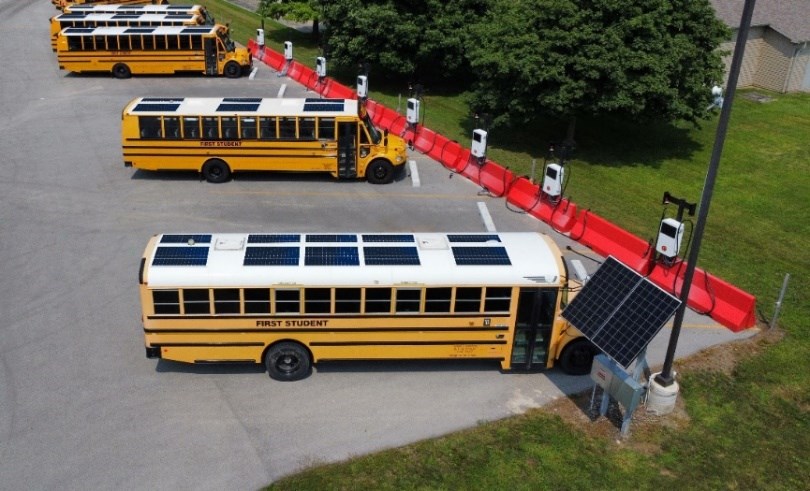Eco-friendly school bus rides are on the horizon for city students, as four electric school buses started operating in Brooklyn this week.
Con Edison and First Student, North America’s largest school transportation provider, on Tuesday launched 12 electric school buses, with four currently operating in Brooklyn, according to a press release.
The buses will be powered by a solar array at a depot on Malta Street in East New York, with smart energy management software ensuring efficient charging without raising electric costs. A two-megawatt battery will store energy for the buses.
First Student President and Chief Executive Officer John Kenning said the project has the potential to create a smart energy hub that supports the local grid while cutting emissions.
“New York’s children and families deserve clean air, which is why we are proud to partner with First Student to launch more electric school buses on our streets," he said.
The full fleet is expected to be operational by next school year. The $9 million investment aims to reduce pollution and noise, replacing diesel-fueled buses with zero-emission electric vehicles. The initiative is part of a broader push for sustainable transportation in urban areas, combining electric vehicles with solar power.
"Con Edison will continue to make critical investments in clean energy so that every New Yorker can have a higher quality of life and thrive in communities free from the harmful impacts of pollution," said Britt Reichborn-Kjennerud, the utility's director of E-Mobility.
The electric buses are part of New York City's goal to electrify the nation's largest school bus fleet by 2035.
“This project is a win for the health and safety of New York’s students and the bus staff who transport them,” said Elijah Hutchinson, executive director of the Mayor’s Office of Climate & Environmental Justice. “When we all work together, we can clean the air we breathe and move closer to our goal of an electrified fleet.”
Electric buses are expected to save the city money, using approximately 2.17 kilowatt-hours of electricity per mile, compared to a diesel bus's fuel efficiency of about 4.2 miles per diesel gallon equivalent. In addition to financial savings, the switch to electric will help eliminate diesel emissions, which are linked to heart disease, asthma and other illnesses.




